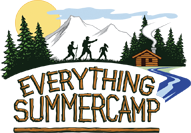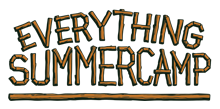Hey, Giddy Golfers!
If Golf is your game, then this Blog post should have your attention! FORE!! A popular enough sport, you won’t have a hard time finding a summer camp that offers Golf as an activity. We all know the name, but where did it come from and where did the sport originate altogether? Let’s dig in and find out on today’s post, highlighting the game of Golf. 
No one can say for sure, but we know of at least a couple possible origins of the name ‘Golf’. Maybe it came from the Scots’ word ‘goulf’ meaning ‘to strike or cuff’. Or maybe it derived from the Dutch word ‘kolf’, which means ‘bat’ or ‘club’. In any case, the name came about around the 15th Century in Scotland because that’s when the game was invented…or was it?
Historians debatably trace Golf all the way back to an ancient Roman game called ‘Paganica’ where the players would use sticks to hit a stuffed leather ball. But the rules of more-or-less modern Golf weren’t developed until 1457 in which driving a small ball with a club toward a small hole on a large playing field with as fewest strokes as possible. Of course, the specifics of 18 holes and detailed rules evolved over time, but the essence of the game was there.
Meditative
As is the case with many activities you’ll find at summer camp, Golf has a meditative element to it. The ball demands focus and swinging your club with just the right motion means having a clear head. Devoting some time to a challenging, but simple goal of lining up shots and putting a ball in a hole is meditative in itself.
A Feel For the Physics
A good game of golf hinges on an understanding of how much force to use behind your shots and being in tune with what that weight feels like as you swing, chip, or tap.
Great Way to Spend Time Outside
A beautiful landscape, golf courses are well-maintained to stay so gorgeous—it’s a marriage of order from people and the wild growth of nature. Get out to the golf course for a fun but challenging game while you see the sights of some great land!
Golf is a skill that’s great to develop. Check out your camp to see if they offer Golf if you want to try your hand at it at summer camp. Maybe you’ll advance your game in the coming summer! Enjoy your time spent out on the courses and, as always, thanks for reading!
- John



 when our ancient ancestors first discovered the ability to create images by dragging certain images across the cave walls. And voila—Drawing was invented!
when our ancient ancestors first discovered the ability to create images by dragging certain images across the cave walls. And voila—Drawing was invented!


